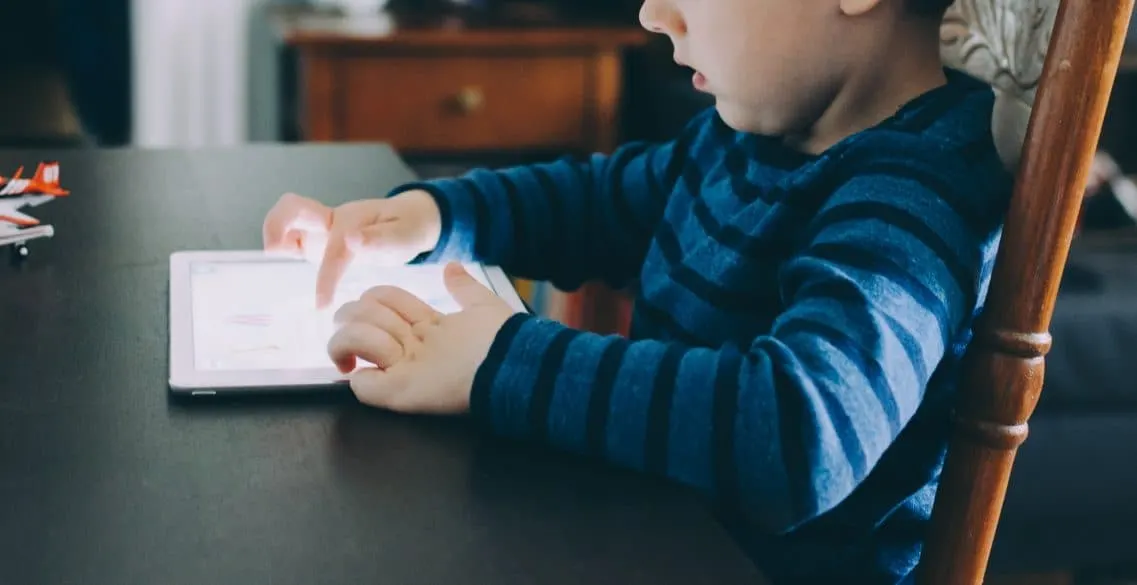We can all agree that the internet has drastically changed our lives. It’s changed how we learn, connect, and communicate. It’s also revolutionized how we can make money and be entertained. It should be a concern for all parents to know how to be safe on the internet.
For all the good things the internet has brought us, there are also a few harmful consequences though, especially for children and teens.

Dangers of the Internet
The dangers of the internet fall into three main categories: inappropriate people, inappropriate content, and poor self management.
Inappropriate content includes: violence, self harm, pornagraphy, and radical ideas. Then there are inappropriate people. These are people who can harm your child by: cyberbullying, sexual grooming, identity theft, and sexting.
The third problem with kids having internet access is they are still learning self management. It can be difficult for them to learn how to balance their screen time with other life activities. It’s also important for your child to understand the impact that their “Online Reputation” has on their life and future.
How to be Safe on the Internet
As parents, we all worry about how to protect our kids and keep them safe. Listed below are three helpful ways to keep your kids safe while they’re online.
Open Communication
One of the best ways to keep kids out of trouble online is to have good open communication with them about what is appropriate and what isn’t. Try to build a relationship with your kids where you can openly talk about difficult or uncomfortable subjects.
Kids need to be aware of the type of danger they may accidentally come across online. Talk to them about all the dangerous content and dangerous people online. Teach them the importance of not talking to strangers, etc.
Now, it’s important to realize you should have two objectives when talking to your kids about being safe on the internet. The first objective is to teach your child all the things they need to do to keep themselves safe while online. The second objective is to teach your child what to do when something negative or scary does happen online – which is to talk to you about it. Let them know that they don’t ever need to be scared or ashamed to talk to you about something that’s happened to them online.

Limit Access
Help your kids understand that having access to the internet is a responsibility and a privilege – not a right.
Limiting your child’s access to the internet can be one of the best ways of keeping them safe until they are old enough to manage the responsibility themselves.
Keep all computers, tablets, and gaming consoles in high trafficked areas of your home. Places like the family room or kitchen. Don’t allow any internet access in bedrooms.
You may also decide that you don’t want to give your teen a smartphone, and instead opt for a phone that doesn’t have internet access.
Set Digital Parental Controls
Setting parental controls doesn’t have to be difficult or confusing. If you need help setting up parental controls start by calling your internet provider’s customer service to see if they can walk you through it. Or you can check out the website InternetMatters.org for help. They have multiple step by step guides that will walk you different types of parental controls, including: gaming systems, cell phones, and tablets. Also check out FamilyTechZone.com for the most up to date information about different apps, devices and parental control systems.
Remember, you can set parental controls on your internet broadband and on an individual device. It’s best to have multiple layers of parental controls. You’ll also want to remember to turn off any location services, so that your child doesn’t accidentally share their physical location with strangers online.

Monitor Their Activity
Finally, you will want to monitor their online activity. This will enable you to have those important conversations mentioned earlier. We use Bark to monitor social media interactions, and a Gryphon router to make sure we know exactly what they are browsing.
Because technology is constantly evolving, keeping kids safe while online is an ongoing endeavor. But with the right knowledge and tools, you and your kids can work together as a team to help keep them safe.
